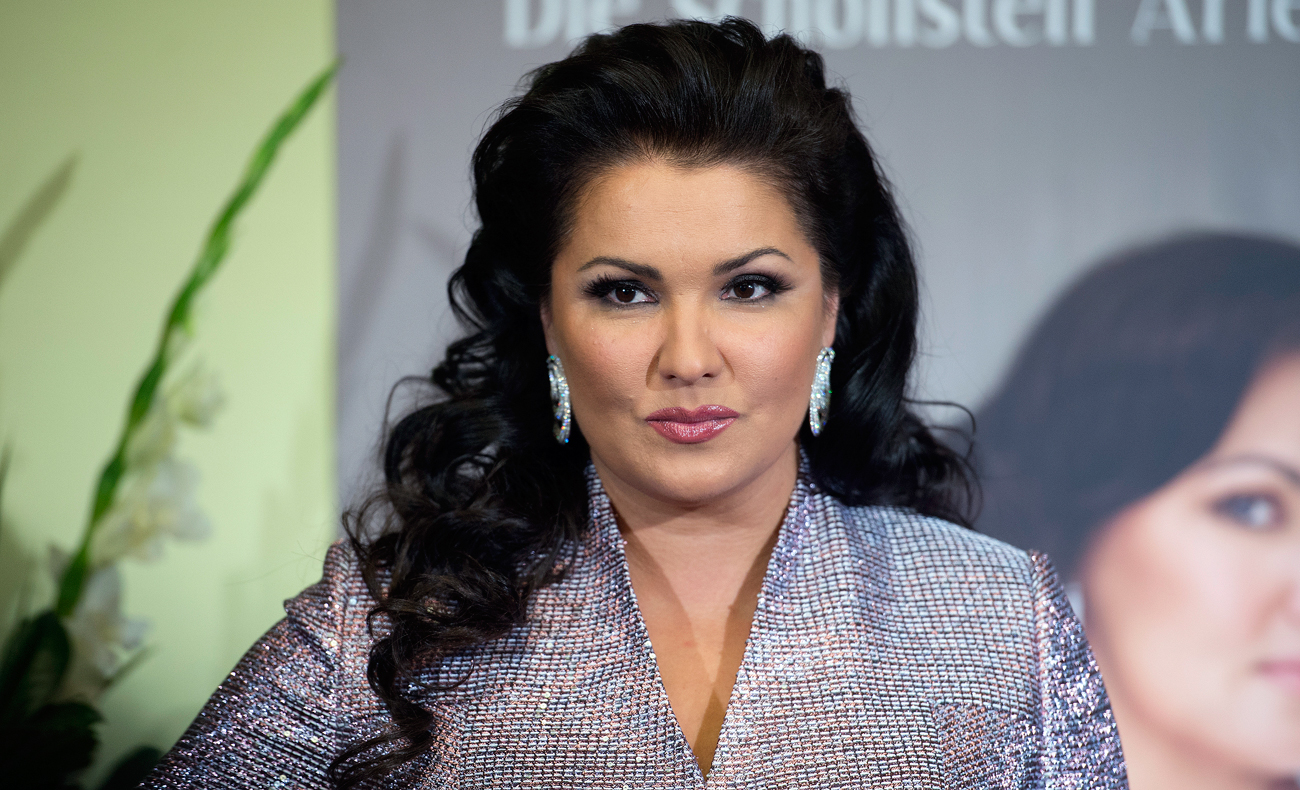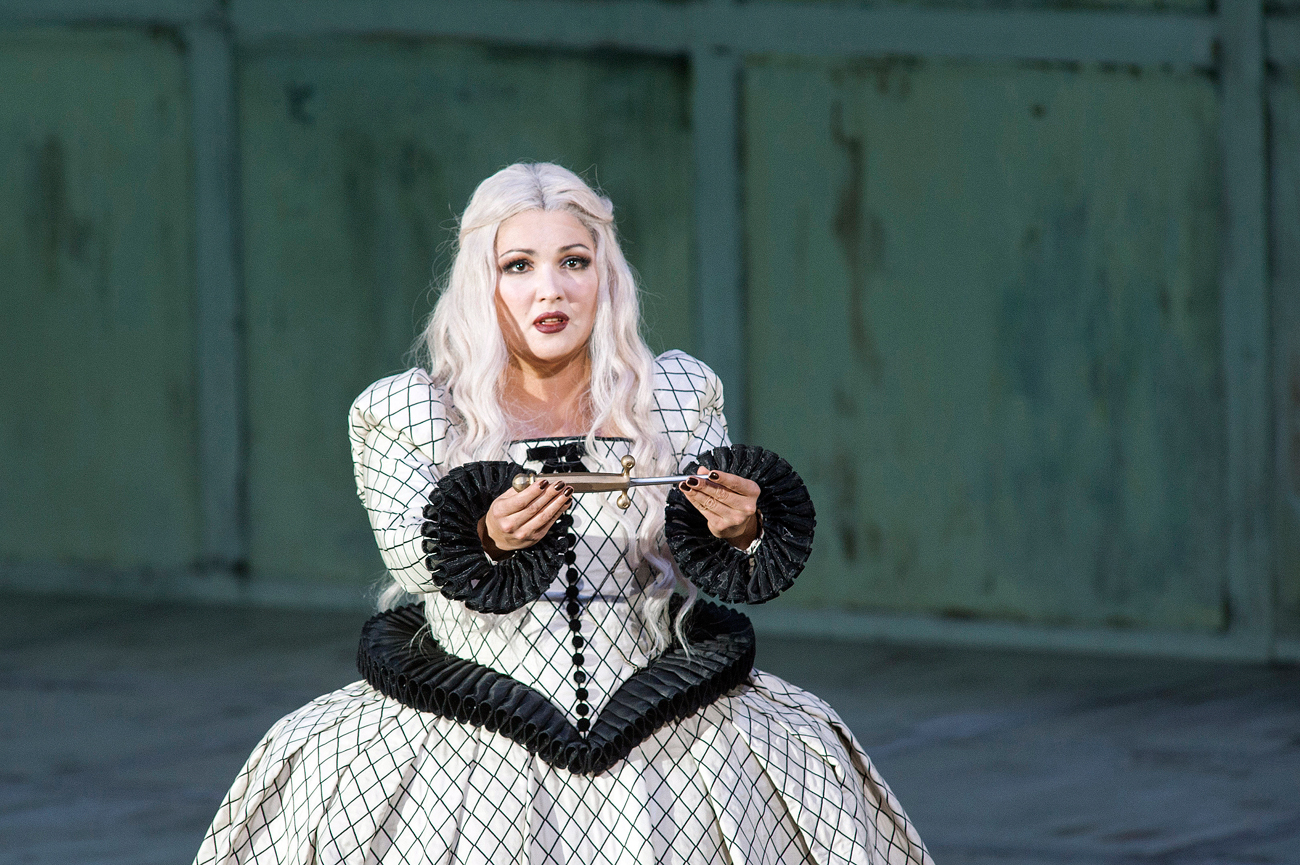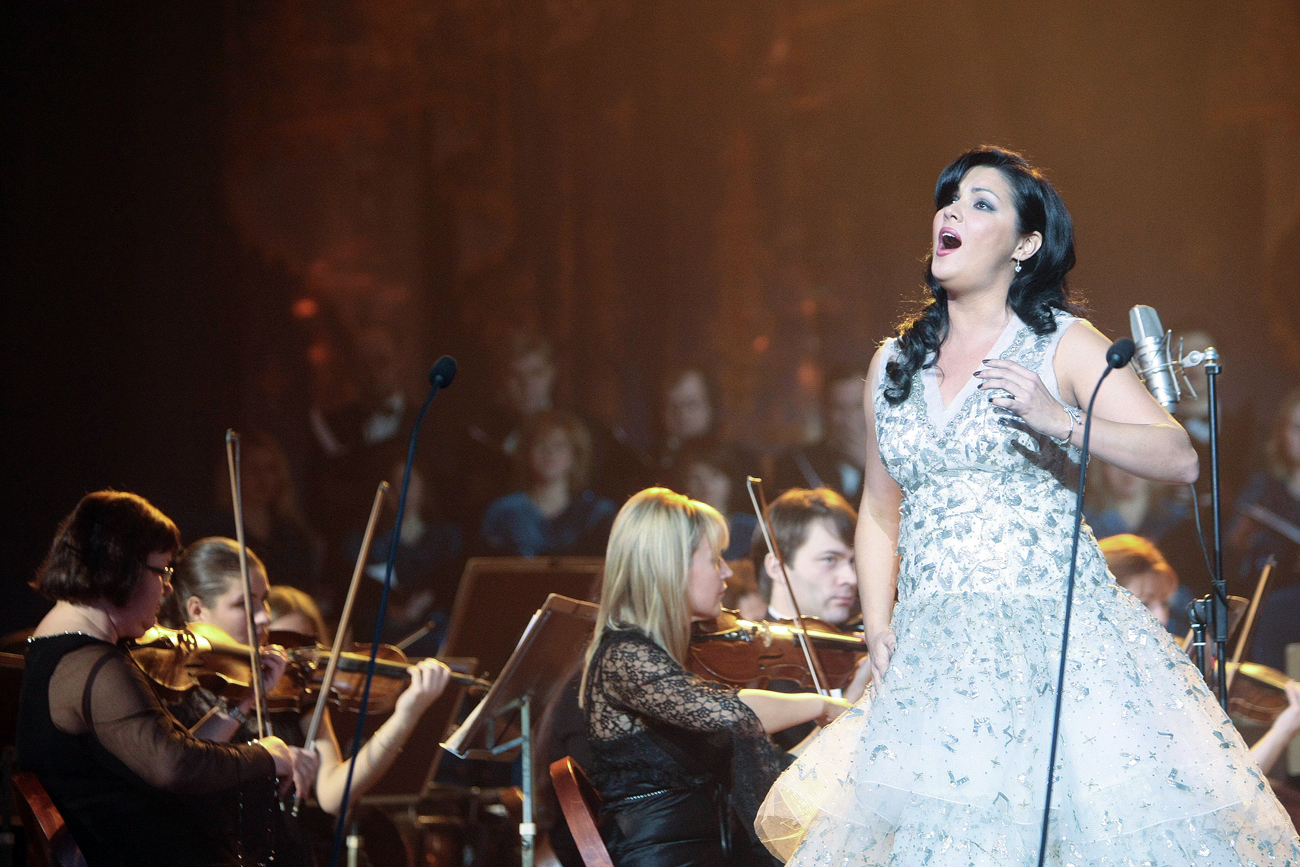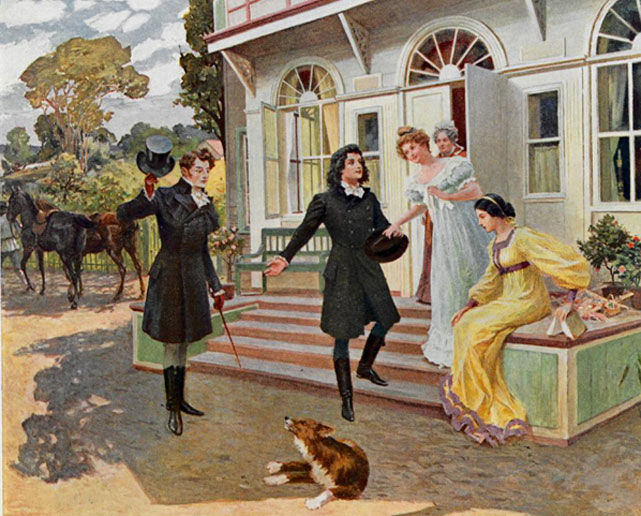Opera diva Anna Netrebko: 'I love all my extra 30 pounds'

Russian opera singer Anna Netrebko poses for cameras in Berlin, on Oct. 9 2016.
AFP / East NewsRossiyskaya Gazeta: It took 25 years of a successful international career for you to debut at the Bolshoi. Why did it take so long?
Anna Netrebko: I do not want to think that the reason was some intrigue or machinations. It's probably poor organization, wrong timing. A long time ago, 12 years ago, Vladimir Vasiliev invited me to sing La Traviata. But at that time, I was not ready to sing Violetta at the Bolshoi, which I honestly told him then.
RG: Why did the choice fall on Manon Lescaut by Puccini – a winning opera, but an extremely hard one for a soprano?
A.N.: When Vladimir Urin [the Bolshoi's General Manager] and I considered what opera to stage, we thought to do one that had not yet been in the theater. That's how the idea to stage Manon was born, in part.
RG: Will there be another performance of Manon Lescaut with you at the Bolshoi?
A.N.: I think, of course, to return to Moscow in a year or a year and a half to sing it once again, it will be easier. Although, frankly, I don't want to sing this opera a lot.
RG: Why?
A.N.: This is a very difficult opera, very bloody. It destroys all the body, starting from the voice and ending with your peace of mind. It cannot be performed often. And after five performances in November at the Met stage in New York, I don't have it in my plans anymore.
But, of course, we will come and sing at the Bolshoi Theater, once the production is already there, although the acoustics were very hard there, and it was difficult to adjust. Sound just does not fly. It feels like you go up and sing into nowhere. When we first took to the Historic Stage, we experienced a real shock. Although I like the production.
RG: Aren't you afraid of Valery Gergiev's jealousy? You're still a soloist of the Mariinsky Theater ...
A.N.: Gergiev and I are very good friends. And he is well aware that the Bolshoi Theater is a GRAND theater. If the singers want to sing there and they are invited, they're singing. And they perform at the Mariinsky Theater for exactly the same reasons. In fact, I have long been listed in the theater only in absentia. I come rarely, once in a season, or even in two.
RG: But will Mariinsky's most anticipated premiere take place next summer, your performance in Adrienne Lecouvreur?
A.N.: Yes! The production will be sponsored by our friend and philanthropist from Los Angeles, Robert Denzel. He loves verism, and he has been dreaming for at least ten years that I sing Adrienne, and then, finally, I found the courage.
RG: Why do you sometimes withdraw from performances which have already been announced, such as Faust by Gounod or Norma by Bellini?
A.N.: As a rule, I sign contracts several years before the event. At that moment, it seems to me that I'll enjoy this or that part, which I have not yet sung, after two or three years, I will learn it with pleasure. But the time comes, and I realize that I do not like the part. So, despite all my desire, neither Margarita nor especially Norma fit me.
I did not even once listen to it to the end. I don't like it. But I really did not want to let down Covent Garden or break my contract with the Metropolitan. It was a very difficult decision, but I accepted it. Honestly, in this, I was greatly helped by the director, from the moment when I saw his concept. It was the last straw, and I refused.
RG: Could you make decisions like these again in the future?
A.N.: I try to be careful in the choice of repertoire and contracts. But, by and large, I rely only on my intuition. And all that is waiting for me ahead, first of all my new parts, I hope they are interesting, and I think I can cope with them.
 Rehearsal of the Opera 'Il trovatore' by Giuseppe Verdi, performance of the German State Opera in the Schiller Theatre in Berlin, Anna Netrebko as Leonora. Source: Getty Images
Rehearsal of the Opera 'Il trovatore' by Giuseppe Verdi, performance of the German State Opera in the Schiller Theatre in Berlin, Anna Netrebko as Leonora. Source: Getty Images
RG: Which ones, for example?
A.N.: Now I am beginning to work on Aida. I am trying it, we'll see if it will it work or not. I still have a lot of work to invest. I will debut in this role at the Salzburg Festival in the summer of 2017. It is very difficult, Aida.
I have already listened to a lot of good and interesting recordings. I found the wonderful aria Ritorna vincitor by Renata Tebaldi, which will be a model for me.
And, of course, a very good recording with Maria Callas, a live one, I think, from Mexico. When she was still in her body. Say what you will, but all weight loss is complete nonsense! When Callas began to lose weight, she began to lose her voice.
RG: Do you follow diets?
A.N.: No! Never! I love all of my extra 30 pounds, since Giuditta, who danced barefoot in Baden-Baden.
I've been keeping my weight up for the past seven years, I love it. I will not give it to anyone. This is what keeps me going. This is my stamina, my strength, to have something to support my voice. Of course, I'm talking about dramatic parts, not an easy repertoire.
RG: Has the fact that you have dramatically changed your role, having gone from a light, almost soubrette repertoire to the most dramatic roles, changed your character?
A.N.: No. In general, I became calmer, childishness with antics and mimicry has gone. I am already 45 years old, how much can you? I'm tired of acting, of representing all what I am not anymore. I find it much more comforting and interesting to work with big, serious characters.
RG: With your real fame as diva assoluta, when your participation turns any opera into a hit, do you have your sights set on the Russian repertoire?
A.N.: I have suffered a lot with Tatiana in Eugene Onegin, until I could love her. By my nature, I was and still am her direct opposite. But I have an aspiration to perform in The Queen of Spades. I like Liza, although I'm not sure that my voice will fit her. But it is a part that is interesting to me, even though it is not most important in the opera, and not particularly winning. I should work a lot at it as well. But, I think, slowly, things can happen. I'm an actress, I can transform myself, erasing my own personality.
RG: And what is your personality at home?
A.N.: At home, I am the softest, quietest and most docile person in the world. Especially in recent years, after I married a wonderful man. The family finally got a real man, I felt that the home has a master, a foundation. I felt so good, I became so relaxed ... Moreover, besides the fact that Yusuf is my husband, he is also a very excellent tenor.
RG: Two singers in one family – is it difficult?
A.N.: No. We do not do warm-up exercises together. Each of us has their own time. I rehearse first, then Yusif, or vice versa. We are very sensitive of each other and clearly know when to give time to rehearse to each other.
RG: And how did you celebrate your jubilee on Sept. 18?
A.N.: Life begins at forty-five. This is not a jubilee. A jubilee is 60 or 75. We just gathered at home. I don't like, in fact, I hate events such as Netrebko and Friends...
I prepared tasty cutlets myself, baked potatoes with rosemary, made sweet American salad, we ordered dolma, kebab, and qutabs from a good Azerbaijani restaurant – it was very tasty and hearty.
 Soprano Anna Netrebko perfoming at the Opera Gala in St Petersburg Conservatory's Opera House. Source: Vadim Zhernov / RIA Novosti
Soprano Anna Netrebko perfoming at the Opera Gala in St Petersburg Conservatory's Opera House. Source: Vadim Zhernov / RIA Novosti
RG: Where is your home today? In St. Petersburg, Vienna or New York?
A.N.: Probably, mostly in Vienna. I am a resident there. I pay taxes there. We consider New York our second home. Maybe, in a year or two, we will move Tisha [Tiago Arua, Netrebko's son – RBTH] to an Austrian school, and he will live and study in Vienna, if only we find a right, good school. Then we'll begin to learn the German language seriously as a family.
RG: What day is most perfect for you?
A.N.: When everybody leaves me alone and lets me live. When I do only what I want: stay at home, do the housework, be with my husband and child, go shopping or to a restaurant. And all this without being followed by tabloid reporters.
RG: Has the current political situation in the world had any impact on your career?
A.N.: No. Although the overall political situation is not encouraging. But the theaters indeed stand firm for the artists. The General Manager of the Metropolitan Opera in New York, Peter Gelb, is the first to intercede. Not only for me, for Valery Gergiev, but for many others as well. I believe art should remain intact, separate from any politics.
RG: You sang the Olympic anthem at the opening of the Games in Sochi. And would you like to perform in Moscow at the opening of the World Cup in 2018?
A.N.: Singing the Olympic anthem in Sochi was an honor for me! The opening of the championship is the same thing. I think if the Motherland asks, then I'll sing. Such things are politically important for the country. If those in charge consider me worthy, I will, as they say, do my best for the country.
The interview has been abridged. The full version was first published in Russian by Rossiyskaya Gazeta.
Read more: Leo Tolstoy’s ‘Anna Karenina’ turned into a musical
All rights reserved by Rossiyskaya Gazeta.
Subscribe
to our newsletter!
Get the week's best stories straight to your inbox

